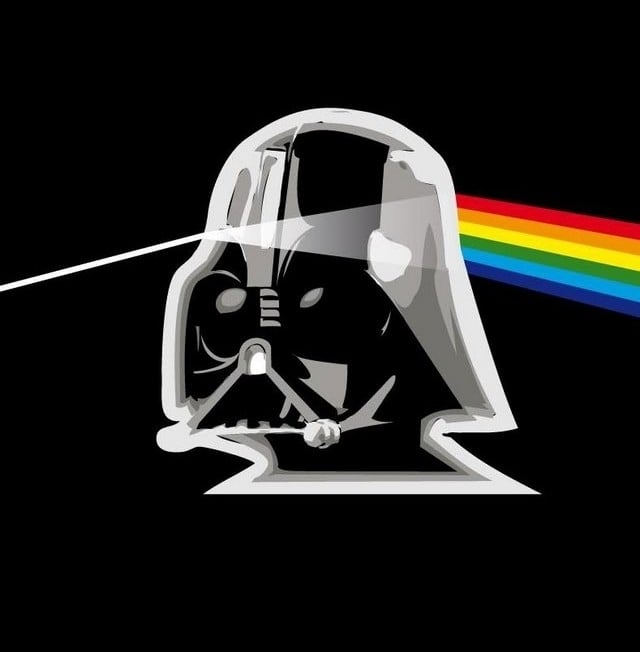yyyyMMddTHH:mm:ss.sss+Z for the win
MM/DD/YY Anything else is wrong
deleted by creator
So if you communicate with someone you will specify the date in the year 2023 september 23rd we shall meet and not 23rd of september 🧐
That is not the point. When you print/document something, use ISO. In everday cases, it won’t matter much.
8601 for life
Beautiful
This.
I can handle DDMMYY[YY] it reads correctly. But YYYYMMDD is numerically correct, most signifcant to least significant digitwise.
That thing only American’s do, is completely non-sensical.
For sorting or filing, I agree. I think in day to day life, though, Day and month are way more significant. So I actually prefer DDMMYYYY for that.
I still prefer yyyymmdd for day to day. If year is irrelevant just skip it. If you only use a date format you get used to it and it becomes the most efficient one due to consistency. Sidenote, in my language the default date format is actually yyyymmdd.
DDMMYYYY would be great, if it weren’t for 95% of Americans that use MMDDYYYY. Is 07/02/2000 July 2nd or Feb 7th?
Thus the only solution is to write out the month or start with the year, because no logical group of people currently use YYYYDDMM. Plus by using YYYYMMDD you get the added benefit of the dates all being sortable using dumber applications.
because no logical group of people currently use YYYYDDMM
You are saying it like if MMDDYYYY made any sense. To someone who uses MMDDYYYY daily, they could think of YYYYMMDD as “Its like the usual but backwards” and now you have a group of people reading it as YYYYDDMM.
You could convince a group of people to use YYYYDDMM, but what I mean is nobody currently uses it. So at this moment of time YYYYMMDD is intuitive, and has a miniscule chance of being mixed up like DDMMYYYY and MMDDYYYY (because a large number of people use these formats).
Please don’t convince Americans to use YYYYDDMM lol. :-)
It’s because that’s how we talk. We say October 5th, not the 5th of October.
English people say October 5th. Spanish people say 5 de Octubre. Same for other languages. That’s probably why Europeans prefer the other format.
Yeah I was talking about Americans specifically
Makes sense, I just mostly interact with Europeans, so I don’t encounter this problem a lot. I really don’t have a problem with YYYYMMDD though anyway.
I absolutely loath the American favorite: 8/9. Like fuck, is that August 9th, September 8th, or just a fraction??
It is sensical for one use:
“So when is the event?”
“May 20th, 2024”It’s such a niche use, though
In what way is it sensible?
I get that you prefer saying it like that, just because you’re used to it. It is conventional but definitely in no way sensible.
In that it at least has a use that one can go, “Alright I guess that technically works”
You mean the 20th of May?
20th in 5th in the year of our lord 2023
I know you’ve been bashed already by others, but could you elaborate on why this is sensical?
In a, “Alright I guess that technically works and at least can follow the logic”. It’s pretty damn niche, however (who is going to ask for two or more years in advanced for a date and not go, “Just text/email it”? Heck, even this is pushing it, but I can at least follow the logic)
Could be that I’m slightly fucking up definitions in my head, it was a long day yesterday
Americans always put the month first.
E.g. July 4th.Except when we don’t, like 4th of July…
I think that’s because you’re used to hearing dates said that way? Over here in DDMMYY-land, we often would say “20th of May, 2024” and that sounds equally sensical to me tbh
And in a lot of countries they just say 20 May, 2024. So no ordinal numbers for the day.
Dd MMM YYYY
So glad this is the default in Japan. 🇯🇵 😌
That one for file sorting, the one in the pic for everything else.
Sorry, in Linux everything is a file, so there is no “everything else.”
Life extends beyond Linux, though. I was speaking in general terms.
No, YYYY-MM-DD is fine for real life. Just drop the year when it doesn’t matter. Billions of people use this format.
I expected to see this when I looked at the comments, and you didn’t disappoint me!
What about YYYY/MM/DD?
Why would you put the day in a secondary sub-folder?
Nobody puts Baby in a tertiary folder!
Now that I think of it, this may actually be a pretty nice system to store files hierarchically by date.
It’s definitely something you can do when the year is in the most-significant-digits place in the order and the day-of-the-month is in the least-significant place.
Works , but MMDDYY ugh
Use hyphens instead of slashes and we’re on the same page.
Even better, easier sorting.
Yeah, that’s the one you use for filenames. Backup images and the likes.
deleted by creator
my best idea is a give my gf a white claw and she isn’t mean to me
This rarely works, btw
yall trippin, it should be MMYYDD
next gen American:
Look at this moron. DY-MY-DM is the only logical date format.
https://xkcd.com/1179/
1691579826This is some enigma date code shit… nearly broke my head trying to work out my birthday
Edit: fuck I see why my birthday wasn’t making sense now, you have the same digit of day and year
It think people didn’t get the joke
I like DDMMYY but for some reason when I include the time as ss:mm:hh nobody shows up to the event on time.
Easiest is dd/mmm/yyyy. Use it for literally everything. Doesn’t work great on the computer but well enough.
mmm?
I think they either made a typo, or they meant like “Jan” “Feb” “Mar” etc.
Jan,Feb,Mar etc.
It’s the standatized way to write the months in three letters. So Jan, Feb etc…
08.008.2028
Covid year was about 120 months long instead of 12 so yea
to make things as not confusing as possible, my rule of thumb is:
- yyyy-mm-dd (yyyy instead of yy ensures that it’s not mistaken for dd-mm-yy) (hyphens can be replaced with underscores)
- dd.mm.yyyy (yyyy same as above) (really dislike using for filenames, sorting doesn’t work)
- mm/dd/yyyy (only if there is no other choice) edit: mm/dd/yyyy vs mm/dd/yy doesn’t matter because both make 0 sense already edit2: i forgor to say that yyyy also avoids y2.1k and subsequent issues
But what about why 10k, the horrors
The first one you listed is an ISO standard date format, and is the only way to go :)
if i write a date on paper i tend to go with 2, but yes
I dunno. If the date is between 2001 and 2012, I prefer YY/DD/MM. So August 4th, 2005 would be 05/04/08.
Some men just like to watch the world burn.
Going day to day, dd/mm/yyyy works, but for archival purposes and looking up stuff in the past, mm/dd/yyyy works better, imo. Like when you need to go through a physical file cabinet, or an electronic database.
Or you’re the type of person who’s zoned out all the time and don’t even know what month it is until you look at a clock or calendar.
for archival purposes yyyymmdd is best. that way you can just sort lexicographically and it’ll also be sorted chronologically
I just dont see why the hell you would switch? dd/mm works fibe in all situations and has some advantages sometimes, while mm/dd is fine sometimes, but generally worse or equal.
08AUG2023 is about as unambiguous as it gets.
Except it doesn’t sort well in any fashion and it requires two different types of contexts to interpret. It’s easier to screw up the order of a month by name than it is to screw up the order of a number. Not saying we should play to least common denominator, but we should be making it as easy as possible. I’d prefer sorting speed over needing to learn how to interpret the date correctly if every single date is stored the same way.

No more comments necessary in this thread.
Date aside, what’s going on with that " blank character " bullshit in the " question " ?
YYYY-MM-DD
Hungarians feeling superior with their YYYY.MM.DD fornat.
Although that’s not ideal for URLs
I believe this is still valid according to ISO 8601 so have an upvote. It also works fine in URLs after the host part.
If I had a forint for something matching order in Hungary and Japan, I would have 2 forints, which isn’t a lot but its weird it happened twice. (Its the order of names and dates)
But we read left to right and the most important part is furthest right hardest to read. It’s convenient for computers sorting alphabetically, but bad for people reading it.
I tried reading your comment right to left and was left even more confused.
now fixed sorry
The most important part is the year.
Why? The year changes least quickly, (especially the decade) so you can often infer without needing it.
The same reason “one thousand” is written 1000 and not 0001
Because that’s the way it’s said? Dates are spoken day month year. Because you go more specific to more general.
Depends on where you live
Because it’s the most significant. If it’s wrong or missing you’re off by much more than if the day or month is wrong.
But that’s good, like a parity check. Because your wrong by much more, it’s easier to tell from context clues. That’s why people abbreviated the year to ‘in 98’ or something like that.
Okay, hear me out.
With other numbers, non-date numbers, we put the numbers representing the most quantity to the left, and numbers representing the last quantity to the right, eg 1 hundred, ten and 1 would be 111, where the number representing 100 qty comes first from the left, and each position moving to the right, represents a smaller and smaller amount.
Since years are longer than months, which are longer than days, the YYYY-MM-DD format actually follows the same convention that we commonly use for all other numbering systems, big on the left, small on the right.
So why would the date be the exception?
For history, sure, but for day to day stuff I think I can remember what year it is and don’t need it right at the front lol
And programmers tend to go: “I don’t need to comment my code, I know what it does” 😂
I use this for notes, and generally everything written; mainly for reference when looking back on old information. Today, whether I say Wednesday the 9th, or 2023-08-09, it’s fairly inconsequential, but in 2-3 years if I have to reference a note, email or something else where I said today’s date, I won’t have to compare the date of the note to the calendar for that time period to see which 9th was on a Wednesday.
Everything you do now becomes history, so adapting to this format makes it easier when today becomes your history.
Thaaaank you





















